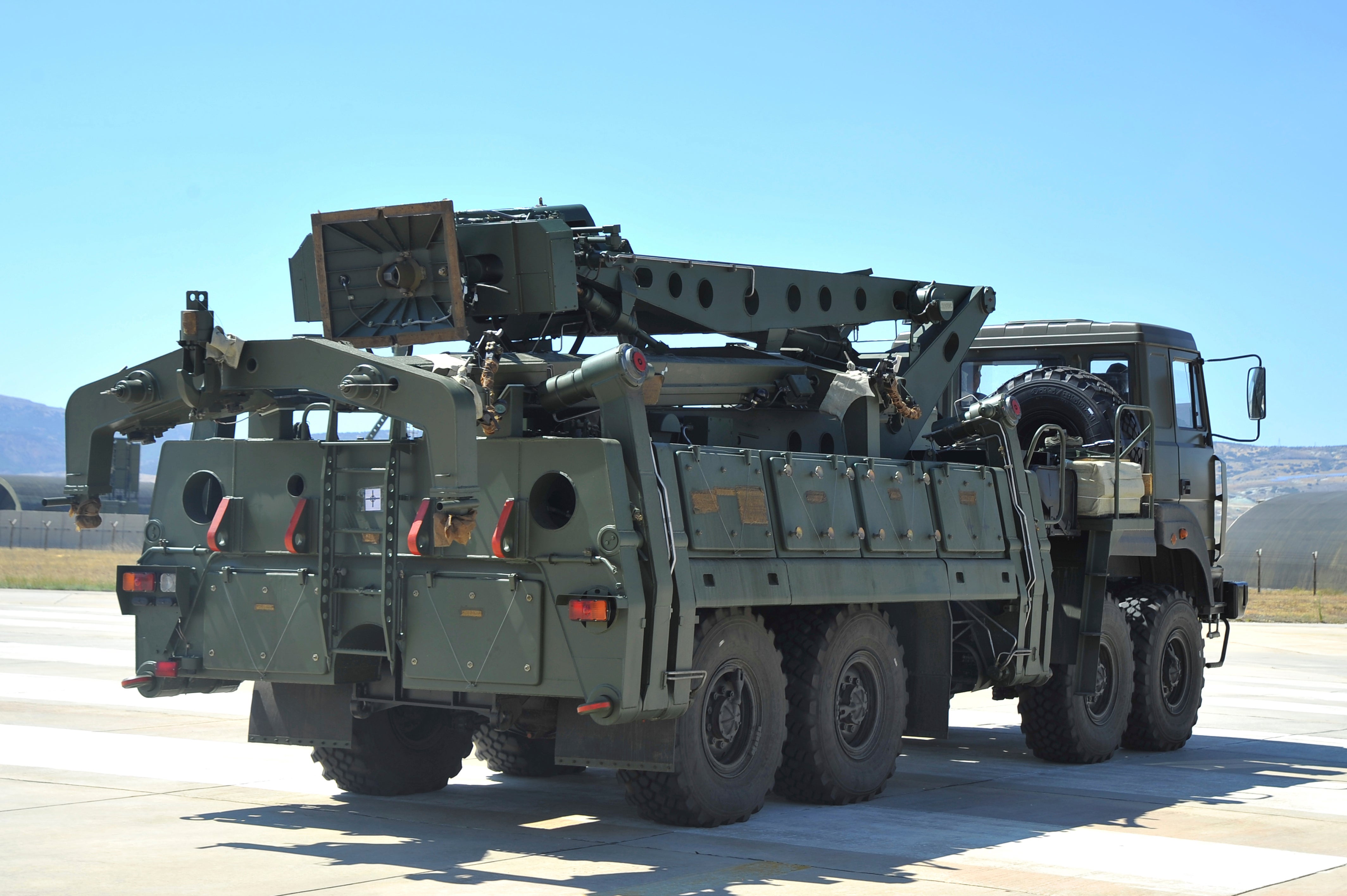Trump administration hits Nato ally Turkey with sanctions over purchase of Russian missile defence system
Move by one Nato ally against another is unprecedented in recent history and has angered Erdogan government

Your support helps us to tell the story
From reproductive rights to climate change to Big Tech, The Independent is on the ground when the story is developing. Whether it's investigating the financials of Elon Musk's pro-Trump PAC or producing our latest documentary, 'The A Word', which shines a light on the American women fighting for reproductive rights, we know how important it is to parse out the facts from the messaging.
At such a critical moment in US history, we need reporters on the ground. Your donation allows us to keep sending journalists to speak to both sides of the story.
The Independent is trusted by Americans across the entire political spectrum. And unlike many other quality news outlets, we choose not to lock Americans out of our reporting and analysis with paywalls. We believe quality journalism should be available to everyone, paid for by those who can afford it.
Your support makes all the difference.The US has imposed sanctions on Turkey over its purchase of the sophisticated Russian S-400 anti-aircraft system that is deemed a threat to the security of the Nato alliance and a violation of a law calling for punishment against countries that purchase weapons from the Kremlin.
Donald Trump’s administration on Monday announced measures include severe financial restrictions and the barring of exports of any goods or technologies to Turkey’s main military procurement agency and its chief Ismail Demir, as well as three other officials.
The move, by one Nato ally against another, is unprecedented in recent history.
“Turkey has contributed a great deal to Nato over the years and continues to do so,” Matthew Palmer, a senior US State Department official, said in a briefing with journalists. “But the acquisition of the S-400 system is, as we have made clear to Ankara, fundamentally inconsistent with its obligations as a Nato ally.”
Christopher Ford, another senior State Department official, said the decision was taken after years of deliberation and attempts at diplomatic outreach.
“Unfortunately, Turkey turned down every single one of these efforts over literally several years now, and many engagements and many alternatives offered, and leaving us with no choice ultimately,” he said.
Turkey’s purchase of the S-400s has already prompted it to be booted from the programme to acquire advanced F-35 stealth fighter jets. US officials say that S-400 could interfere with some of the capabilities of the jets, and that the arrival of Russian technicians to install and maintain the anti-aircraft systems could cause security breaches.
Though the latest sanctions were relatively mild and limited, the announcement prompted anger by both the Turkish government and the opposition. It comes days after the European Union announced it would recommend sanctions on Turkey next year over its continued exploration for gas reserves in waters that Greece and Cyprus consider their exclusive domains.
Fahrettin Altun, communications adviser for Turkish president Recep Tayyip Erdogan, called the decision “unreasonable, fruitless, and ultimately incompatible with the spirit of our partnership,” and accused Washington of bowing to “anti-Turkey lobbies.”
He described the purchase of the S-400s as “necessary” for Turkey’s national security.
“Instead of targeting Turkey with sanctions, we expect the United States, our Nato ally, to support our fight against terrorists and third parties that pursue their self-interested agendas in our neighbourhood,” he said in a series of tweets.
Turkey moved toward the purchase of the S-400s, a mobile Russian anti-aircraft system, in 2017 after the administration of former US president Barack Obama balked on selling Ankara the Patriot missile defence systems. Though Washington later reversed course, Turkey has also begun to drift geopolitically towards Moscow.
The purchase of the S-400s came to be seen as a way to maintain strong ties with Russia as the US became perceived as a fickle ally, especially after its support for Syrian Kurdish rebels deemed a security threat by Anakra.
Strengthening ties with Russia is a relatively popular move among Turks of all political stripes who have grown deeply mistrustful of the US. The People’s Republican Party, Mr Erdogan’s most formidable political opponents, issued a statement late Monday strongly supporting the decision to buy the S-400s and rejecting the sanctions, which were required under a 2017 US law forbidding dealings with Russian weapons makers.
“Instead of taking such a sanction decision, it would be expected for the US to seek a solution through dialogue,” said the statement.
Experts worry that harsh sanctions on Turkey could prod it into more closely aligning with Russia or China. But Mr Palmer said the move to impose the sanctions was a last resort, and that the US was not abandoning Turkey. He noted that Turkey and Russia have found themselves on opposite sides during recent and ongoing armed conflicts in Libya, Syria and the Caucasus.
“What we have been doing broadly speaking is to work with our Turkish partners to reinforce and strengthen the relationship with the United States and to help Turkey understand its interests as being best served through its relationship with its Western partners rather than through the relationship that it’s developed with Moscow,” he said.


Join our commenting forum
Join thought-provoking conversations, follow other Independent readers and see their replies
Comments